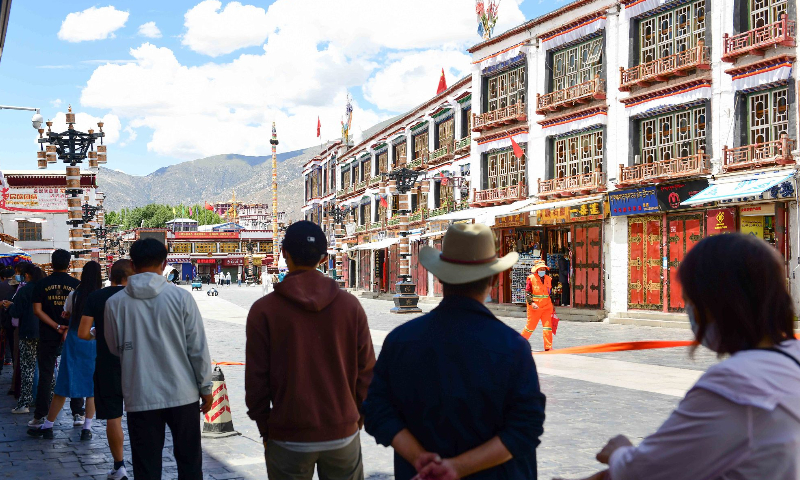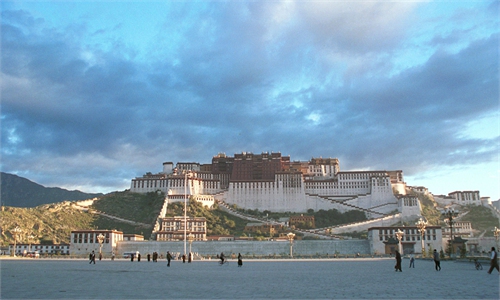
Residents in Lhasa, capital of Southwest China's Xizang (Tibet) Autonomous Region, line up to take COVID-19 nucleic acid tests on August 9, 2022. Photo: VCG
Lhasa, capital of Southwest China's Xizang Autonomous Region announced on Monday that the city has essentially cut off community transmission following an effort of more than 20 days against the Omicron variant BA.2.76. The wave of flare-ups broke out on August 7, when 18 positive cases were detected.
However, the city authorities reminded all residents that it does not mean the risks have been cleared. Lhasa still has a certain number of medium- and high-risk level areas, especially in the main urban areas. The situation of epidemic prevention and control is still grim and complex and the risk of hidden transmission still exists, the authorities said on Monday.
The epidemic prevention and control measures will continue to operate efficiently, such as strengthening medical resource reserves and capacity building for nucleic acid testing. A multi-channel monitoring mechanism should be carried out to ensure timely detection of sporadic sources of infection in the community and possible spillover in controlled areas, according to the authorities.
Scientific nucleic acid testing and strict management over risky regions will be carried out to prevent the virus from spreading, said the city authorities.
Lhasa on Sunday registered 264 new local positive cases, including 252 asymptomatic cases and 169 regions in the city have been put under closed-loop management due to the epidemic, according to the authorities. The city currently has 39 high-risk regions and 17 medium-risk areas.
Compared with Omicron BA.2, the BA.2.76 variant detected during this outbreak can spread more easily and has greater ability to escape immunity, the city authorities said.
Except Lhasa, at least four cities including Qamdo, Nagqu, Nyingchi and Shannan have reported no new community cases of infection after several rounds of nucleic acid testing.
Also, some officials have been removed from posts in Xizang due to ineffective anti-COVID work. In Lhasa alone, as of August 24, a total of 22 officials have been punished for inadequate implementation of epidemic prevention work.

